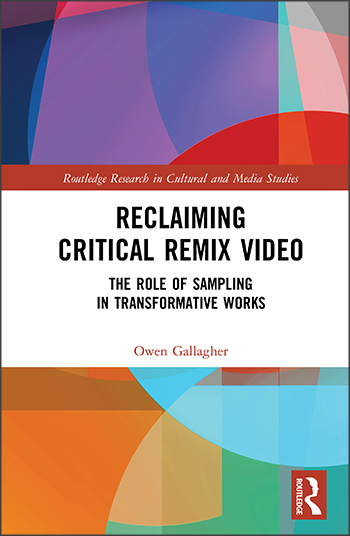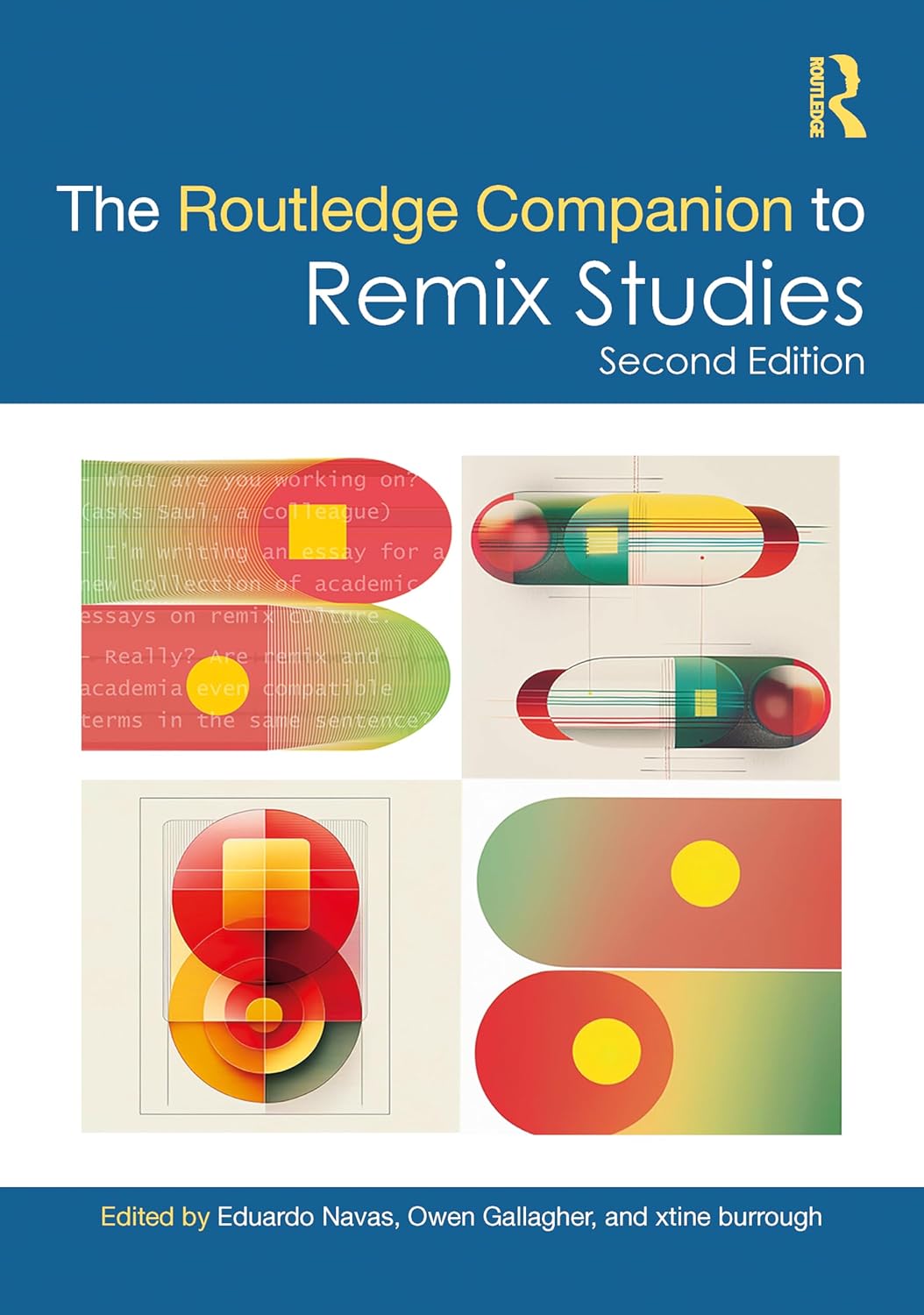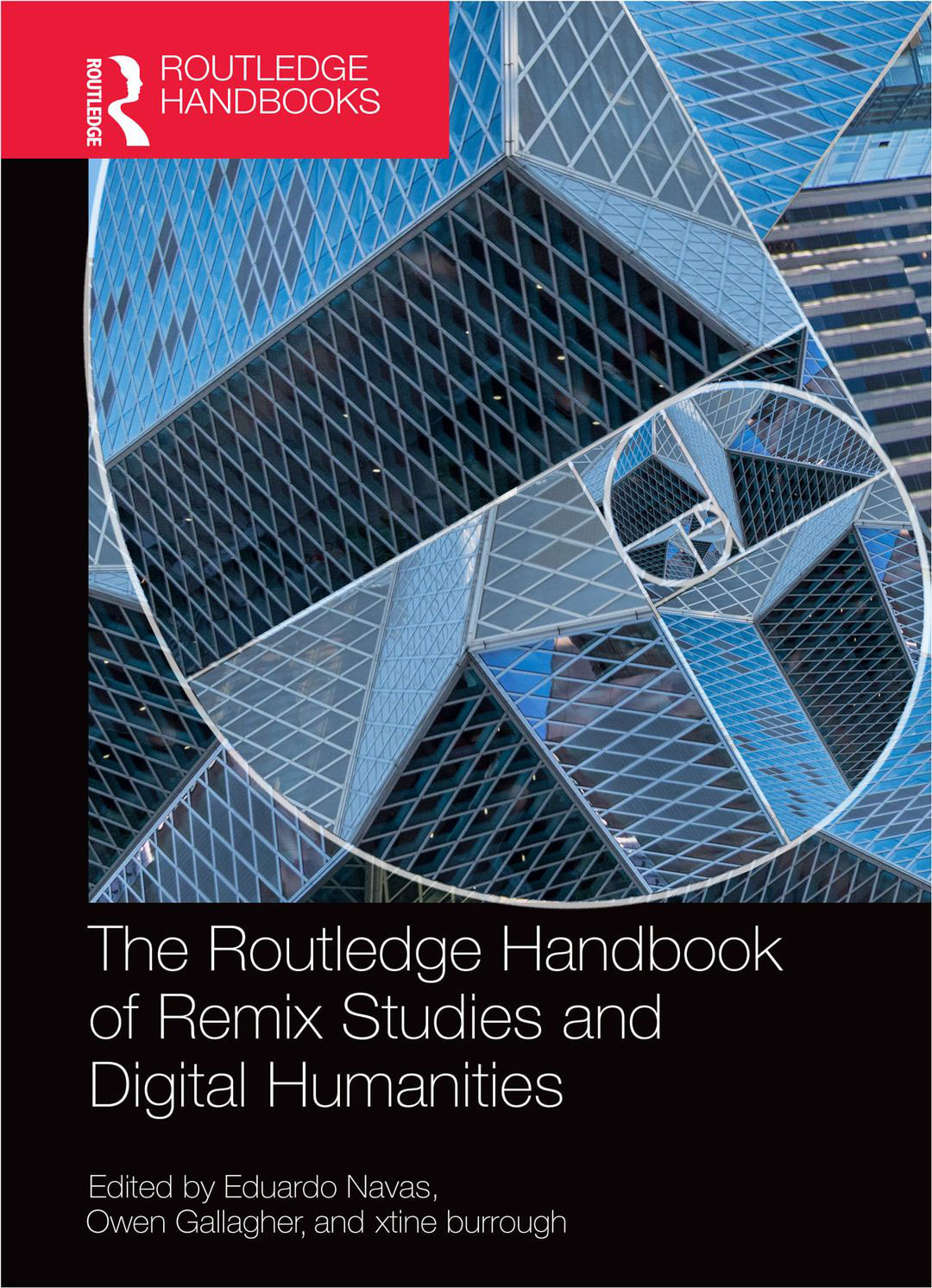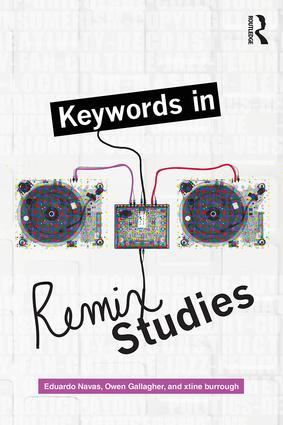 Owen Gallagher is the author of Reclaiming Critical Remix Video: The Role of Sampling in Transformative Works (Routledge, 2020), editor of The Routledge Companion to Remix Studies (2025), The Routledge Handbook of Remix Studies and Digital Humanities (Routledge, 2021), and Keywords in Remix Studies (Routledge, 2018), and has published a number of book chapters, journal articles and conference papers on remix culture, intellectual property and visual semiotics. He is the founder of TotalRecut.com, an online archive of remix videos, and co-founder of the Remix Theory & Praxis seminar group. Owen received his Ph.D. in Visual Culture from NCAD and is Head of School of Creative Media and Asst. Professor (filmmaking, animation, game design) at Bahrain Polytechnic. He is particularly concerned with the changing roles of copyright and creativity in the age of AI.
Owen Gallagher is the author of Reclaiming Critical Remix Video: The Role of Sampling in Transformative Works (Routledge, 2020), editor of The Routledge Companion to Remix Studies (2025), The Routledge Handbook of Remix Studies and Digital Humanities (Routledge, 2021), and Keywords in Remix Studies (Routledge, 2018), and has published a number of book chapters, journal articles and conference papers on remix culture, intellectual property and visual semiotics. He is the founder of TotalRecut.com, an online archive of remix videos, and co-founder of the Remix Theory & Praxis seminar group. Owen received his Ph.D. in Visual Culture from NCAD and is Head of School of Creative Media and Asst. Professor (filmmaking, animation, game design) at Bahrain Polytechnic. He is particularly concerned with the changing roles of copyright and creativity in the age of AI.
The Routledge Companion to Remix Studies – 2nd Edition (Routledge, 2025)
Description: The second edition of The Routledge Companion to Remix Studies significantly advances contemporary scholarship by providing updated and expanded interdisciplinary insights into remix culture, creativity, authorship, and intellectual property within a rapidly evolving digital landscape in the age of AI. By integrating diverse contributions from scholars and practitioners across media studies, law, art, technology, and cultural theory, the volume effectively bridges theoretical discourse with practical application, reaffirming remixing as a central cultural practice. It remains an essential resource for researchers, educators, creators, and policymakers navigating the complexities of creative reuse and digital media production.
Reclaiming Critical Remix Video: The Role of Sampling in Transformative Works (Routledge, 2020)
Description: Remix is now considered by many to be a form of derivative work, but such generalizations have resulted in numerous non-commercial remixes being wrongfully accused of copyright infringement. Gallagher argues, however, that remix is a fundamentally transformative practice. The assumption that cultural works should be considered a form of private property is called into question in the digital age; thus, he proposes an alternative system to balance the economic interests of cultural producers with the ability of the public to engage with a growing intellectual commons of cultural works. Multimodal analyses of both remixed and non-remixed intertextual work, with a particular focus on examples of critical remix video, fuel the discussion, synthesizing a number of investigative methods including semiotic, rhetorical and ideological analysis.
The Routledge Handbook of Remix Studies and Digital Humanities (Routledge, 2021)
Description: In this comprehensive and highly interdisciplinary handbook, contributors reflect on remix across the broad spectrum of media and culture, with each chapter offering in-depth reflections on the relationship between remix studies and the digital humanities. The anthology is organized into sections that explore remix studies and digital humanities in relation to topics such as archives, artificial intelligence, cinema, epistemology, gaming, generative art, hacking, pedagogy, sound, and VR, among other subjects of study. Selected chapters focus on practice-based projects produced by artists, designers, remix studies scholars, and digital humanists. With this mix of practical and theoretical chapters, editors Navas, Gallagher, and burrough offer a tapestry of critical reflection on the contemporary cultural and political implications of remix studies and the digital humanities, functioning as an ideal reference manual to these evolving areas of study across the arts, humanities, and social sciences. This book will be of particular interest to students and scholars of digital humanities, remix studies, media arts, information studies, interactive arts and technology, and digital media studies.
Keywords in Remix Studies (Routledge, 2018)
Description: Keywords in Remix Studies consists of twenty-four chapters authored by researchers who share interests in remix studies and remix culture throughout the arts and humanities. The essays reflect on the critical, historical and theoretical lineage of remix to the technological production that makes contemporary forms of communication and creativity possible. Remix enjoys international attention as it continues to become a paradigm of reference across many disciplines, due in part to its interdisciplinary nature as an unexpectedly fragmented approach and method useful in various fields to expand specific research interests. The focus on a specific keyword for each essay enables contributors to expose culture and society’s inconclusive relation with the creative process, and questions assumptions about authorship, plagiarism and originality. Keywords in Remix Studies is a resource for scholars, including researchers, practitioners, lecturers and students, interested in some or all aspects of remix studies. It can be a reference manual and introductory resource, as well as a teaching tool across the humanities and social sciences.








